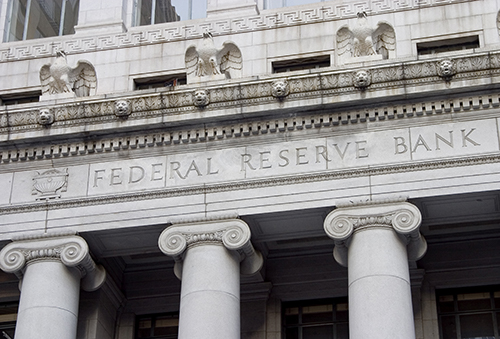Last Thursday, August 27th, Federal Reserve Chairman Jerome Powell spoke at the annual economic symposium in Jackson Hole, Wyoming. The Jackson Hole conference is one of the few annual events where investors can get an update on what the Federal Reserve sees in the economy and what future policy will be. This speech was notable because Chairman Powell used this to announce a shift in the Federal Reserve's long-run monetary policy framework. In the future, the Federal Reserve will place more emphasis on its mandate for job growth, which could cause higher inflation and impact your portfolio.
The Federal Reserve is unique among global central banks in that it has a dual mandate to promote full employment and a stable currency. The stable currency mandate has traditionally meant that the Federal Reserve would do everything to limit inflation. People will recall when Paul Volcker was chairman of the Federal Reserve and allowed the Fed Funds rate to reach 19.1% in 1981 to crush the high-inflation experienced during the 1970s since that Fed Funds rate has steadily declined to 0.09% where it sits today. By putting the employment mandate first, the Fed is saying that it will tolerate higher inflation. Before the 2008 Financial Crisis, inflation was never acceptable. This change will have long-term effects on people's portfolios, especially if we enter a period of higher inflation, with interest rates at a low level.
Inflation is considered extremely bad for bondholders. Inflation means that your future dollars will buy less of the same goods. Money lent out and repaid at a fixed value will slowly lose its value, meaning a bondholder or lender is paid back less than they lent. This put retired individuals and savers in a challenging place. The US 10 Year Treasury Bond currently yields 0.68%; if inflation is even slightly above that, an investor will lose money. This is especially alarming when you consider that inflation has run at an average of 2.1% for the last 20 years, investors who have relied on bonds for income will have to accept losses in the future.
There are other options for investors looking for current income, equities, especially outside of the US, offer extremely high yields, US equities are also compelling with the S&P 500 yielding more than the Barclays US Aggregate. Investors must be careful when adding in dividend-paying equities to their portfolios as they will be introducing more volatility, which can make it difficult to stay invested when the market drops. Private markets also offer more significant opportunities for investors to get higher yields at potentially lower risk than public equities. Non-Public lending strategies can provide investors with materially higher average yields. These private lending strategies are also less sensitive to inflation as they often have floating interest rates, which will rise if inflation dramatically increases. However, investors must be willing to accept greater illiquidity for these strategies. Still, we firmly believe that these are an attractive alternative to traditional fixed income in today's low-interest-rate environment.
We do not recommend that investors abandon fixed income. Bonds' ability to balance equity risk is a critical part of portfolio construction, and there are very few asset classes as practical as bonds. However, for people who need income from their portfolios, private investments can offer a compelling alternative.
The Federal Reserve is unique among global central banks in that it has a dual mandate to promote full employment and a stable currency. The stable currency mandate has traditionally meant that the Federal Reserve would do everything to limit inflation. People will recall when Paul Volcker was chairman of the Federal Reserve and allowed the Fed Funds rate to reach 19.1% in 1981 to crush the high-inflation experienced during the 1970s since that Fed Funds rate has steadily declined to 0.09% where it sits today. By putting the employment mandate first, the Fed is saying that it will tolerate higher inflation. Before the 2008 Financial Crisis, inflation was never acceptable. This change will have long-term effects on people's portfolios, especially if we enter a period of higher inflation, with interest rates at a low level.
Inflation is considered extremely bad for bondholders. Inflation means that your future dollars will buy less of the same goods. Money lent out and repaid at a fixed value will slowly lose its value, meaning a bondholder or lender is paid back less than they lent. This put retired individuals and savers in a challenging place. The US 10 Year Treasury Bond currently yields 0.68%; if inflation is even slightly above that, an investor will lose money. This is especially alarming when you consider that inflation has run at an average of 2.1% for the last 20 years, investors who have relied on bonds for income will have to accept losses in the future.
There are other options for investors looking for current income, equities, especially outside of the US, offer extremely high yields, US equities are also compelling with the S&P 500 yielding more than the Barclays US Aggregate. Investors must be careful when adding in dividend-paying equities to their portfolios as they will be introducing more volatility, which can make it difficult to stay invested when the market drops. Private markets also offer more significant opportunities for investors to get higher yields at potentially lower risk than public equities. Non-Public lending strategies can provide investors with materially higher average yields. These private lending strategies are also less sensitive to inflation as they often have floating interest rates, which will rise if inflation dramatically increases. However, investors must be willing to accept greater illiquidity for these strategies. Still, we firmly believe that these are an attractive alternative to traditional fixed income in today's low-interest-rate environment.
We do not recommend that investors abandon fixed income. Bonds' ability to balance equity risk is a critical part of portfolio construction, and there are very few asset classes as practical as bonds. However, for people who need income from their portfolios, private investments can offer a compelling alternative.

